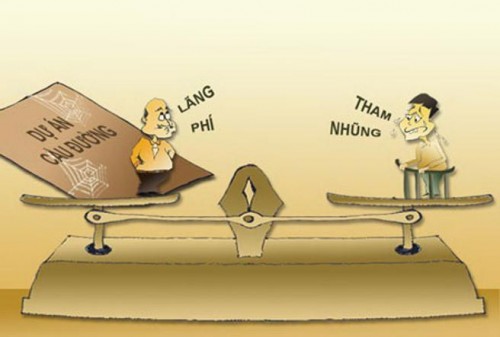The Client is an foreign Embassy in Vietnam. On 16th August 2016, the Embassy and the Employee signed the undefined labour contract and the Employee started work for Embassy from 16th August 2016. The regimes and benefits that the Employee is entitled to under the labour contract including:
a) The monthly salary is 800USD;
b) Being enjoyed 20 annual leave days per each year. Currently, the Employee has 20 unused annual leave days in 2020 and 10 unused annual leave days in 2021.
c) Social Insurance: the Embaysee pays 22% per total salary and the Employee pays 10,5% per total salary.
d) Being enjoyed the 13th month salary: for each working year, the Employees shall be enjoyed one 13th month salary an to be paid twice in a year, of which half is in July of the year and the remaining half in December. In case the Employee works for less than one year, he shall be enjoyed the 13th month salary in proportion to his actually working time in the year.Sổ tay ăn dặm | Mèo phong thuỷ | Bảo Châu Sport
Accordingly, the Client would like to request SB law to give legal advice on settlement of benefits for employee upon termination of the Labour Contract due to death.
Based on the Client’s requirement, SB Law provided a legal opinion as follows:
1. Benefits enjoyed by Employee upon termination of Labour Contract due to death
According to information provided by the Client, we understand that the Employee died at his home on 18th June 2021. Hence, the Labour contract shall be terminated under the case of “The Employee dies” stipulated in Article 34.6 of the Labour Code.
- According to the provisions of Clause 1, Article 46 and Clause 1, Article 48 of the Labour Code, when the Labour Contract is terminated due to the Employee’s death, the Embassy will have the following obligations:
- (i) To pay of amounts related to the Employee’s benefits as stipulated in the labour contract: (i) monthly salary of June, 2021; (ii) Unused annual leave salary ; (iii)13th month salary; (iv) severance allowance.
- (ii) To complete the procedures for verification of duration of participation in social insurance and unemployment insurance and return the originals of the Employee’s personal papers (if the Employer has kept them).
- (iii) To provide copies of the documents related to the Employee’s work history under requested by the Employee’s Relative. The Embassy shall pay the cost of copying and sending the documents.
The amounts related to the Employee’s benefits mentioned in Section 1.2 (i) above are as follows
Monthly salary of June 2021
– The monthly salary of the Employee is 800USD. According to the extract of death declaration issued by the People’s Committee of Quynh Loi Ward, Hai Ba Trung District, Hanoi on July 5, 2021, the Employee died at 12 o’clock on 18th June 2021. Accordingly, the Labour contract between the Employee and the Embassy will terminate on 18th June 2021. At the same time, the Employee will be paid the entire salary from 1st June 2021 to 18th June 2021.
– The Employee’s salary will be calculated as follows: (800USD/22 working days of the month) * 14 actual working days = 509 USD.
Unused annual leave salary
– According to the information provided by the Embassy, the Employee has 20 unused annual leave days in 2020 and 10 unused annual leave days in 2021. According Clause 3, Article 113 of the Labour Code, if the annual leave days has not been taken off upon termination of labour contract, the Embassy will be responsible for payment of salary for unused annual leave.
– In Clause 3, Article 67 of Decree No. 145/2020/ND-CP stipulating that the salary as the basis for payment of Employee’s unused annual leave days is the salary written in his labour contract of the month preceding the month in which the Employee resigns.
– Employee’s monthly salary of May 2021 is 800USD. Accordingly, the Embassy will have to pay the salary of the Employee’s unused leave days as follows:
(800USD/22 working days of the month) * 30 annual leave days = 1,091 USD.
Payment of severance allowance
– According to Article 46 of Labour Code, the Employee shall be paid severance allowance, half of a month’s salary for each working year. Of which, the working period used for the calculation of severance allowance is the total period during which the Employee actually works for the Employer minus the period during which the Employee has participated in unemployment insurance.
– However, during her working time from 16th August 2016 to 18th June 2021, the Embassy has paid social insurance, health insurance and unemployment insurance for the Employee in accordance with the Vietnam law. Accordingly, the Embassy is not required to pay severance allowance for the Employee, the Emloyee’s severance allowance shall be paid by insurance authority.
Payment of 13th month salary/Thanh toán tiền lương tháng 13
– According to the Labour contract, the Employee shall be paid one 13th month salary for each working year. In case the Employee works for less than a year, the Employee will be entitled to the 13th month salary in proportion to the time worked in the year.
– The Employee died at his home on 18th June 2021, then, the Employee’s 13th month salary shall be calculated from 1st January 2021 to 18th June 2021 equivalent to 06 months, in detail
800 USD/12 month per year * 6 actual working months = 400 USD
From the analysis mentioned in Section 1.3, upon termination of the Labour Contract due to death, the Embassy shall be responsible for paying the Employee the following Benefits.
| No. | Payment | Amount (USD) |
| Monthly salary of June, 2021 | 509 | |
| Unused annual leave salary | 1,091 | |
| 13th month salary from1st January 2021 to 18th June 2021 | 400 | |
| Total | 2,000 | |
It is noted that the above Benefits shall be subject to Personal Income Tax. Therefore, the Embassy will be responsible for deduction of PIT upon payment of Benefits, then, on behalf of the Employee pays its PIT to the tax authority.
2.Procedures for paying benefits to the Employee
2.1.According to Article 612 of the Civil Code, the Employee’s Benefits is considered as an inheritance. Due to the sudden death of the Employee without a Will, the inheritance will be divided in accordance with law. Therefore, the Employee’s Benefit will be paid to the legal heirs.
2.2. According to Article 651 of the Civil Code, heirs at law are categorized in the following order of priority:
a) The first line of heirs comprises: spouses, biological parents, adoptive parents, offspring and adopted children of the deceased;
b) The second line of heirs comprises: grandparents and siblings of the deceased; and biological grandchildren of the deceased;
c) The third line of heirs comprises: biological great-grandparents of the deceased, biological uncles and aunts of the deceased and biological nephews and nieces of the deceased.
The people in the next line of heirs are only entitled to inherit, if there is no one in the previous line of heirs because they have died, have no right to inherit, to deprive an heir of the right to inherit or disclaimer of inheritance.
2.3.According to the information provided by the Embassy, the Employee is divorced, has a 3-year-old son and his parents was died. Accordingly, the first line of inheritance of the Employee has only a 3-year-old son. However, the Employee’s heir is not old enough to perform civil transactions, so the Employee’s children cannot directly receive the Benefit from the Embassy.
2.4.According to Clause 3, Article 21 of the Civil Code, civil transactions of a person under the age of six will be performed by his/her legal representative. Next, according to the provisions of Clause 1, Article 73 of the Law on Marriage and Family, a parent is the legal representative of a minor child, unless the child is a guardian or has another legal representative. Thus, in this case, the Employee’s Ex-wife will be the person to represent her son to receive Employee’s Benefits from the Embassy.
2.5.When paying the Benefits to Employee’s Ex-wife, the Embassy should ask Employee’s Ex-wife to provide documents proving that Employee’s Ex-wife is the legal representative of Employee’s son including a copy of the birth certificate of his son, copy of Employee’s Ex-wife ID card. The Embassy can pay the Benefits by bank transfer or cash. After paying the Benefits, the Embassy should ask Employee’s Ex-wife to sign a written commitment with the following contents: (i) Employee’s Ex-wife is the legal representative of Employee’s son and has full capacity the civil act of receiving the Benefits; (ii) confirmation of receipt of the full Benefit from the Embassy: (iii) commitment to not have any complaints from the time of receiving the Benefits.
3.Other relevant procedures
– Within 14 days from the date of termination of the Labor Contract, the Embassy is responsible for completing the procedures to confirm the time of payment of social insurance and unemployment insurance premiums for the Employee at the insurance authority. In order to complete this procedure, the Embassy needs to carry out the procedures for reporting a reduction in social insurance in accordance with Clause 1, Article 98 of the Law on Social Insurance 2014. According to Article 23, Decision 595/QD-BHXH dated April 14 In 2017, a dossier of notice of social insurance reduction includes the following documents: (i) Declaration of adjustment of information on social insurance and health insurance (Form TK3-TS); (ii) List of employees participating in social insurance, health insurance and unemployment insurance (Form D02-TS); (ii) List of information (Form D01-TS).
– In addition, according to Clause 1, Article 66 and Article 69 of the Law on Social Insurance 2014, the Employee’s relatives are entitled to a lump-sum funeral and survivorship allowance. Accordingly, the Embassy will be responsible for supporting the Employees’ relatives to carry out the procedures for receiving benefits at the insurance authority. The Embassy will provide relavent documents to assist Employees’ relatives in completing the application for benefits under the request of the insurance authority.
See more:

















